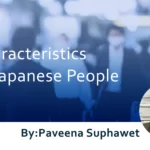Current State of SEO and Google Algorithm in Japan
contents
 This article explores the current state of SEO in Japan and its relationship with Google’s algorithm, highlighting the unique challenges and strategies shaped by local cultural and seasonal factors.
This article explores the current state of SEO in Japan and its relationship with Google’s algorithm, highlighting the unique challenges and strategies shaped by local cultural and seasonal factors.
Current State of SEO in Japan
Japanese web marketing often follows American trends, making it somewhat behind in leading-edge developments. However, many large companies are engaged in SEO, partly due to active advocacy by Japanese SEO and web marketing firms.
Yet, many small and medium-sized enterprises, which comprise over 99% of Japanese companies, lag in web marketing due to manpower and funding limitations.
Japanese Google Algorithm
The Google algorithm is essentially unified across the world, meaning the approach is the same whether in Japan or in Western countries.
However, there may be differences in the elements displayed in search results depending on the region, affecting the approach to optimization.
Notably in Japan, due to the clear distinction of the four seasons, seasonally strong keywords can see a drastic increase or decrease in display frequency depending on the time of year.
Additionally, the Japanese language is quite unique, leading to highly developed natural language processing technologies.
As a result, strategies solely based on keyword embedding are ineffective. However, there are universal Google optimization strategies that focus on Japanese users.
Google’s search engine initially undergoes trial operations centered in the United States before spreading globally. Japan, while being one of the world’s major cities, does not always receive immediate updates, resulting in slight delays compared to the latest American algorithms.
For instance, the trial introduction of SGE, related keywords, and People Also Ask features were first implemented in the U.S. before arriving in Japan. These changes can affect suggestions, potentially altering user pathways and indirectly impacting search results.
Typically, when a core update starts in the U.S., it begins in Japan after a slight delay. Information and expertise about Google SEO are thus best aligned with the American version of Google.
Local SEO
Local SEO is highly valued in Japanese business, especially for businesses with physical stores or those selling products and services. Strategies include enhancing store information, keyword strategy, collaboration with local businesses, and increasing reviews to gain a higher rating.
However, some Japanese companies engaging in Local SEO resort to unethical practices like keyword stuffing. Not all well-known or large corporations are necessarily trustworthy.
The basic concept of Local SEO is similar to that in the West, but in Japan, it is often referred to as MEO (Map Engine Optimization). Therefore, if you seek local SEO services in Japan, it might be more accurate to search for MEO providers.
Mobile Optimization
Japan has a very high rate of mobile device ownership, with almost everyone possessing one. While desktop searches are common at home or work, mobile searches are extremely prevalent during commuting or while on the move, making mobile optimization a critical aspect of web marketing in Japan.
Mobile optimization of websites is essential, and for certain products, aligning web advertisement timings with commuting hours can significantly increase impressions, reflecting Japanese lifestyle habits.
Natural Language Processing in Japanese
Japanese is a globally recognized complex language with diverse grammar and expressions. The same meaning can be perceived differently in Kanji or Hiragana, requiring an entirely different approach from English.
In Google searches, websites using unnatural Japanese are unlikely to be ranked highly, emphasizing the need for perfect Japanese content by Western countries targeting Japanese audiences.
Localization’s importance has been discussed previously, but be prepared for the effort and cost involved in localizing content to Japanese, which can be more than Westerners might expect.
Seasonality and Trends
Japan has distinct seasons, and cultural openness to both domestic and foreign events affects user search trends. Seasonal changes impact food and fashion preferences.
While predominantly Buddhist, Japanese enthusiastically participate in Christmas, Valentine’s Day, and Halloween, although in ways that might differ significantly from Western customs.
School graduations in March and new academic years in April might seem unusual compared to Western norms, and the Coming of Age ceremony for 20-year-olds is a unique event involving local government.
These aspects mean that while there isn’t a unique Japanese Google algorithm, consumer behavior significantly shifts due to local customs and culture, necessitating both long-term strategies and adaptations to short-term trends.
Summary
In Japan, the Google algorithm is generally consistent with global standards, but search results can vary due to regional characteristics. Seasonal changes and unique culture are significant, with a focus on local SEO and mobile optimization. Additionally, advanced natural language processing in Japanese necessitates content targeting the Japanese market to be in flawless Japanese.










![What is a Description? Explaining the Meaning, Writing Style, and Changing Word Count – [2023 Edition]](https://www.switchitmaker2.com/en/wp-content/uploads/2024/09/what-is-description.webp)









